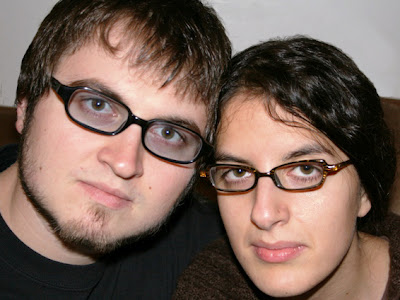BREAD
Following crusty loaves of life itself
“You have to cut it thick. That’s what he said about the bread, the round crusty loaf he called Campobasso bread, after the name of the store, which itself was named for a mountain town on the spine of Italy. The best bread, you cut it too thin, he said, it’s worthless. I watched him cut bread, holding the loaf on its side with one hand, thumb of the other hand, the knife hand, edging over the haft onto the back of the blade to guide the slicing, down through the crust and into the springy middle of the bread. –DON DeLILLO, Underworld
I first experienced bread like this – bread which is: a thing you eat and a city and a religion and a culture and a history – in the twisting, labyrinthine streets of Prague with Jennifer and the ghost of Kafka. Bread which you buy in quartered hunks from corner grocers with drooping untrimmed mustaches or if you are very lucky from a rotund baker in a white shirt and white apron. In the latter case the bread will be made to taste even better if the backroom business is right up front: the ovens, the mixing tables, the smells right there in front of your eyes.
New York is good for this. Last Saturday after Jennifer and I finished looking at the Brooklyn Museum of Art we wandered past the twinkling Christmas Tree made entirely out of tiny shifting lights in Army Plaza in front of Prospect Park and happened upon a Jamaican bakery which as it turned out to Jennifer’s glee specialized in vegetarian patties (patties are a sort of half-moon pastry stuffed with stuff). According to Melanie (who is Jamaican, so she should know), the proper way to eat patties is to stuff them in coca bread (which is similar to Haitian bread but not quite as heavy, sweeter, and with more butter). As we stepped into the bakery, the dreadlocked apronman was walking a big tray of oven-hot coca bread behind the counter. It was hot, sweet, good; the way it should be. Ten minutes later when we left, the tray of coca bread was half-way gone.
Mark Bittman, the Minimalist in the “Dining In” section of the Wednesday, New York Times, says that bread baking has not changed much in its 6,000 year-old history. We do it much the same as the Old Kingdom Egyptians, but in a near perfect world the flavor, the crust, the smell, the shape, should be different – not a pre-sliced homogenous mass in a plastic bag. Bread should take us to another place – it should tell us something about the people that eat it. Bread contains a history of taste; a drama of grain ground to white, sifted, and worked into shape. The turning of earth into the ration of life.
Understandably, most of us don’t have the time or spaces compatible with bread baking or buying from flour-coated rotund men with untrimmed mustaches, but using the Minimalist’s methods, Jennifer and I have been able to replicate the little round pieces of crusty history I and Don describe above in a (surprise!) minimal amount of time. Get the recipe for the No-Knead Revolution by clicking here.
Following crusty loaves of life itself
“You have to cut it thick. That’s what he said about the bread, the round crusty loaf he called Campobasso bread, after the name of the store, which itself was named for a mountain town on the spine of Italy. The best bread, you cut it too thin, he said, it’s worthless. I watched him cut bread, holding the loaf on its side with one hand, thumb of the other hand, the knife hand, edging over the haft onto the back of the blade to guide the slicing, down through the crust and into the springy middle of the bread. –DON DeLILLO, Underworld
I first experienced bread like this – bread which is: a thing you eat and a city and a religion and a culture and a history – in the twisting, labyrinthine streets of Prague with Jennifer and the ghost of Kafka. Bread which you buy in quartered hunks from corner grocers with drooping untrimmed mustaches or if you are very lucky from a rotund baker in a white shirt and white apron. In the latter case the bread will be made to taste even better if the backroom business is right up front: the ovens, the mixing tables, the smells right there in front of your eyes.
New York is good for this. Last Saturday after Jennifer and I finished looking at the Brooklyn Museum of Art we wandered past the twinkling Christmas Tree made entirely out of tiny shifting lights in Army Plaza in front of Prospect Park and happened upon a Jamaican bakery which as it turned out to Jennifer’s glee specialized in vegetarian patties (patties are a sort of half-moon pastry stuffed with stuff). According to Melanie (who is Jamaican, so she should know), the proper way to eat patties is to stuff them in coca bread (which is similar to Haitian bread but not quite as heavy, sweeter, and with more butter). As we stepped into the bakery, the dreadlocked apronman was walking a big tray of oven-hot coca bread behind the counter. It was hot, sweet, good; the way it should be. Ten minutes later when we left, the tray of coca bread was half-way gone.
Mark Bittman, the Minimalist in the “Dining In” section of the Wednesday, New York Times, says that bread baking has not changed much in its 6,000 year-old history. We do it much the same as the Old Kingdom Egyptians, but in a near perfect world the flavor, the crust, the smell, the shape, should be different – not a pre-sliced homogenous mass in a plastic bag. Bread should take us to another place – it should tell us something about the people that eat it. Bread contains a history of taste; a drama of grain ground to white, sifted, and worked into shape. The turning of earth into the ration of life.
Understandably, most of us don’t have the time or spaces compatible with bread baking or buying from flour-coated rotund men with untrimmed mustaches, but using the Minimalist’s methods, Jennifer and I have been able to replicate the little round pieces of crusty history I and Don describe above in a (surprise!) minimal amount of time. Get the recipe for the No-Knead Revolution by clicking here.




